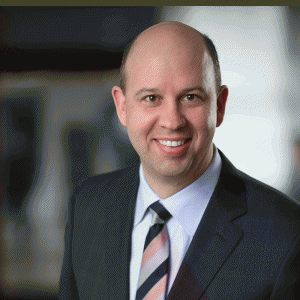Business side: Personal finance
CONVERSATIONS WITH BUSINESS EXPERTS

(R.H.) WHEN IT COMES TO PERSONAL FINANCE, WHAT IS YOUR ADVICE TO FARMERS?
(P.V.) Farmers are typically very much involved in their farming business and sometimes this is to the detriment of other areas, including investing. When it comes to managing financial assets, diversification of investments is important.
The ‘how to’ of diversifying assets depends to an extent on business structure — whether the farm is incorporated or operating as a sole proprietorship or partnership.
If the business is a sole proprietorship, maximizing a Registered Retirement Savings Plan (RRSP) is a great way of reducing taxes. When the farm is incorporated, there are more tax strategies involved in terms of how to pull money out of the farm for personal spending. In this case, we may not be paying significant salary so the investments may actually become part of the farms’ assets and a holding company may be opened to move the diversified assets outside of the operating company.
HOW DO YOU RECOMMEND CHOOSING INVESTMENTS?
Sole proprietor farmers can buy up to 18 per cent of their income in RRSPs with a maximum limit of $24,930 in 2015 — a contribution that can certainly be worth doing to save on tax bills. Although not tax-deductible, up to $41,000 could also be sheltered in a Tax-Free Savings Account (TFSA) for the sole proprietor and also for their spouse.
For farmers who are incorporated, I tend not to recommend TFSA contributions because money would have to flow out of the corporation either as a salary or dividend and tax paid on it, just to put it back into a sheltered investment. If the business owes money to the individual, however, it may be possible to extract money out of the corporation tax-free.
Especially for young farmers, I’m very partial to RRSPs because it saves on taxes and provides an asset outside of the farm. Putting money in a RRSP, however, means it is committed for retirement. TFSAs are also important because that is money that can be accessed if need be as it can be viewed as retirement money or a short-term reserve.
Young farmers may invest for growth because they plan on farming for the next 20 or 30 years whereas the soon-to-retire farmer’s portfolio may be more conservative because it is soon to be called upon as income.
WHAT CAN FARMERS DO TO MANAGE THEIR PERSONAL FINANCES?
Many farmers I know are good at managing risk from a business perspective but sometimes forget about the importance of discussing the personal ‘what if’ scenarios and looking at risk protection measures such as insurance.
It is important to remember that there are different risk factors at different ages. Young farmers may have a greater need for living insurance, such as disability and business overhead insurance. If they were to become disabled, insurance would come in 30 days later to cover the farm mortgage or equipment loan payments that they may have. For older farmers, who may have less debt or are debt-free, having living benefits may be less important than having life insurance.
Life insurance can also be used as part of a succession strategy. When there are multiple children in a family but not all are involved on the farm, insurance owned personally or through the corporation can provide liquidity that can be used when someone passes away.
WHAT ROLE CAN A FINANCIAL PLANNER PLAY?
I think every good farmer knows that the value of advice is important. As financial planners, we use the accounting and tax information to plan ahead and look forward. There is a lot of money in our farm businesses in terms of cash flow and assets (now and upon sale) and a financial planner who has a specialty in or awareness of farming is really helpful.
Once a financial plan is in place it should be reviewed once per year, at a strict minimum. In reality, there may be a meeting early in the year for RRSP top up or current contributions and again once the tax returns are complete. The plan is also updated or changed when there is ‘money in motion’ during a life event such as farm expansion, asset sale, new child entering the business, and death.
HOW CAN FARM MANAGERS ENCOURAGE EMPLOYEES TO HAVE GOOD PERSONAL FINANCIAL MANAGEMENT?
When farms have employees, it’s like any other business with employees — they are key assets. If an employee is well looked after by their employer, it fosters greater loyalty, retention, and productivity. Farmers could introduce employees to their financial planner and for bigger farms, a group RRSP could be set up so contributions towards retirement could be made and matched to a certain percentage of income or dollar amount. •























